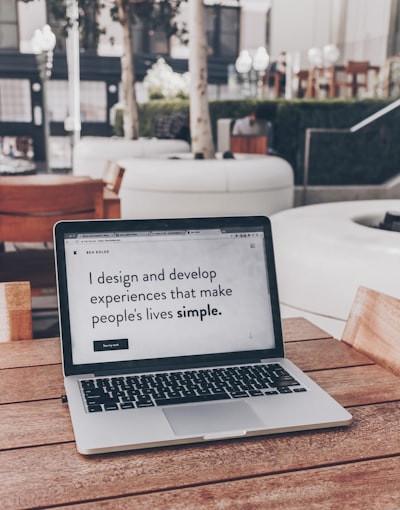5 Tips to Deal with Graphic Design Clients – Graphic Design Degree Hub
Curated from: graphicdesigndegreehub.com
Ideas, facts & insights covering these topics:
5 ideas
·683 reads
12
Explore the World's Best Ideas
Join today and uncover 100+ curated journeys from 50+ topics. Unlock access to our mobile app with extensive features.
Discuss what is expected on both sides
Don’t accept a project without discussing what is expected on both sides.
Make sure you understand what your client wants you to do, how much time they are giving you to do it, and to what extent they expect you to include them in the process. If you think their expectations are unrealistic, discuss alternative timelines or adjustments to the project.
It’s a good idea to give each client a written copy of your process, including milestones where you’ll expect payments. This will keep them from calling you to ask about the next step, and it may prevent payment delays.
30
180 reads
Plan ahead for changes and delays
There are many reasons that the details of a project may change, so you must plan for that when drafting your contract and discussing your work process. You should cover the steps a client may take when requesting changes to the original design plan, and this includes adjustments to the timeline and budget.
Many clients don’t realize how much work is involved for changes that they consider simple. When setting milestone dates and deadlines, give yourself some room for unexpected delays.
28
130 reads
Price quotas
Don’t give a price quote until you’ve thoroughly discussed the needs of the client.
There are some things that justify an increase in your rate, but you may not know that those things apply until you’ve thoroughly discussed the project. If they expect you to put other projects aside and rush their order, then they should expect to pay a bit more. They should also expect to pay for added elements or more complex designs, so hear the client out before you give them a number.
26
127 reads
Avoiding unrealistic expectations
Offer clients a first and second phase to control unrealistic expectations and nonstop additions.
Clients come to you because they don’t have the knowledge needed to take the vision in their heads and turn it into a functional product. This is why many successful designers create a two-phase project.
The first phase will include essential features which make the product functional. The second phase will include features that are more elevated but which aren’t necessarily needed. In many cases, the first phase product is exactly what the client needs.
30
115 reads
Accept that some projects are destined to die
Stay in the design business long enough, and you’ll run into at least a few clients that are on fire for their projects at the beginning but drop out of sight somewhere along the way. These are often clients with big dreams and a shortage of ambition or funds.
As long as you’ve given the client a timeline for payments and are firm in collecting before you proceed to the next milestone, you won’t lose out financially. You just have to accept that there may come a point when your messages go unanswered and you have to set the project aside.
27
131 reads
IDEAS CURATED BY
Roger Conrad's ideas are part of this journey:
Learn more about career with this collection
How to create a strong portfolio
How to network and market yourself as a designer
How to manage time and prioritize tasks
Related collections
Similar ideas
8 ideas
A Comprehensive Guide to the Graphic Design Workflow
dribbble.com
8 ideas
8 ideas
How To Build Rapport With Freelance Clients: 7 Tips
freelancinghacks.com
Read & Learn
20x Faster
without
deepstash
with
deepstash
with
deepstash
Personalized microlearning
—
100+ Learning Journeys
—
Access to 200,000+ ideas
—
Access to the mobile app
—
Unlimited idea saving
—
—
Unlimited history
—
—
Unlimited listening to ideas
—
—
Downloading & offline access
—
—
Supercharge your mind with one idea per day
Enter your email and spend 1 minute every day to learn something new.
I agree to receive email updates

